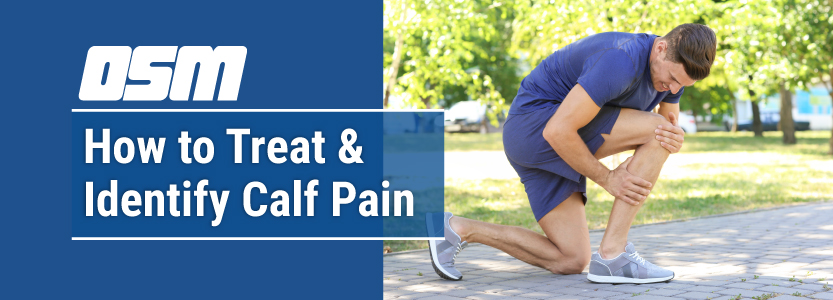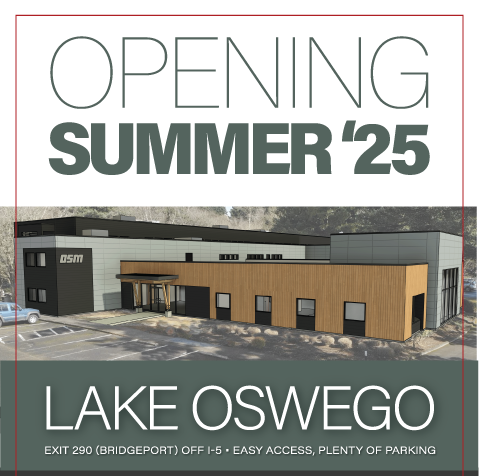How to Treat & Identify Calf Pain
Article featured on Cleveland Clinic
What is calf muscle pain?
Calf muscle pain can be a dull ache or a sharp pain in the back of your leg, behind your shinbone. It can feel a little different for everyone. If you get pain when you’ve been doing something physical like walking or running, the cause is generally muscular. But if the pain comes on suddenly without a clear cause, it could be a problem with your blood vessels.
Who gets calf muscle pain?
Anyone can get calf muscle pain. It’s more common in athletes and people who exercise and put excess stress on their calf muscles. People over age 65 are also at a higher risk of lower leg pain due to muscle weakness, certain health conditions or if they’ve been inactive.
Other factors that can make calf muscle pain more likely include:
- Certain medications, including cholesterol-lowering drugs.
- Diseases such as hypothyroidism (underactive thyroid gland), liver disease, kidney disease, diabetes or peripheral artery disease (PAD).
- Edema (swelling due to fluid build-up) in your lower leg.
- Heat exhaustion.
- Low electrolytes due to dehydration or dialysis (a procedure to clean your blood).
- Pregnancy.
- Short or tight calf muscles.
- Smoking or using tobacco products.
Possible Causes
What causes calf muscle pain?
Calf muscle pain can have a variety of causes, including:
- Claudication: Narrowed arteries can prevent your calf muscles from receiving enough blood, which deprives them of oxygen. Intermittent claudication can cause muscle pain when you exercise or walk. It’s especially common in people who smoke or who have diabetes or PAD.
- Contusions: A direct blow to a muscle, such as a kick in the calf, can damage your muscle tissue without breaking your skin. Calf contusions usually cause bruising and soreness. Severe contusions can lead to compartment syndrome, a dangerous condition that prevents blood from getting to your leg muscles.
- Cramps: Leg cramps occur when the muscles suddenly contract (shorten), causing a painful muscle spasm. A calf cramp is often called a “charley horse.” Cramps can be the result of dehydration or overexertion. A cramp might last for just a few seconds, but your muscle can feel sore for hours afterward. Leg cramps and calf muscle pain at night are very common.
- Deep vein thrombosis (DVT): In rare cases, what seems like calf muscle pain can actually be DVT. This is a serious condition that causes a blood clot to form in your lower leg. It can lead to a pulmonary embolism, which is life-threatening.
- Strains: A pulled calf muscle, or a calf muscle strain, occurs when you overstretch your calf muscles. Severe overstretching can cause a torn calf muscle.
- Tendonitis: Tendons attach your calf muscles to bones in your leg. Tendonitis (tendon inflammation) can put pressure on your calf muscle or make it painful for the muscle to work.
Care & Treatment
How is calf muscle pain treated?
You can usually treat mild calf muscle pain at home using the RICE method:
- Rest: Avoid walking or running with calf muscle pain. Don’t push through pain, which can make the problem worse.
- Ice: Put an ice pack or cold compress on your calf muscles for 20 minutes every two hours. Don’t apply ice directly to your skin.
- Compression: Apply a compression bandage or wrap to your calf. Compression helps reduce blood flow to the painful area and minimize swelling.
- Elevation: Lift your leg into an elevated position, preferably above the level of your heart. Support the entire length of your leg with pillows, blankets or cushions.
If you have sore calves from a muscle cramp or feel a painful knot in your calf muscle, it may help to gently stretch your calf.
Your healthcare provider may recommend additional treatments depending on the cause of your calf pain, including:
- Pain relievers.
- Physical therapy.
- Soft cast or boot to immobilize your lower leg in the case of a strain or tear.
How is vascular calf muscle pain treated?
If your healthcare provider determines your calf muscle pain is the result of claudication, treatments may include:
- Diet modification to reduce your intake of sodium (salt), cholesterol, saturated fat and sugar.
- Exercise.
- Medications to manage high blood pressure, cholesterol and diabetes.
- Medication to prevent or treat blood clots.
- Medications to improve blood flow in the legs.
- Quitting smoking and using tobacco products.
Will I need surgery for calf muscle pain?
Most people don’t need surgery for calf muscle pain. In rare cases, people need surgery for torn calf muscles, blood clots or blocked arteries in the calf.
When to Call a Doctor
When should I contact my doctor about calf muscle pain?
Contact your doctor if you have:
- Discoloration, such as very pale or bluish skin, in your leg, feet or toes.
- Problems moving or walking.
- Severe or sudden calf pain.
- Swelling in your calf or anywhere in your lower leg.
Calf muscle pain is a common complaint and isn’t usually cause for alarm. But sometimes pain in your calf is a sign of a more serious condition, such as problems with the blood vessels in your leg. Seek help if the pain developed without activity or persists even with rest. This could be a sign of a more severe condition that needs to be evaluated.
The Orthopedic & Sports Medicine Center of Oregon is an award-winning, board-certified orthopedic group located in downtown Portland Oregon. We utilize both surgical and nonsurgical means to treat musculoskeletal trauma, spine diseases, foot and ankle conditions, sports injuries, degenerative diseases, infections, tumors and congenital disorders.
Our mission is to return our patients back to pain-free mobility and full strength as quickly and painlessly as possible using both surgical and non-surgical orthopedic procedures.
Our expert physicians provide leading-edge, comprehensive care in the diagnosis and treatment of orthopedic conditions, including total joint replacement and sports medicine. We apply the latest state-of-the-art techniques in order to return our patients to their active lifestyle.
If you’re looking for compassionate, expert orthopedic and podiatric surgeons in Portland Oregon, contact OSM today.
Phone:
Address
1515 NW 18th Ave, 3rd Floor
Portland, OR 97209
Hours
Monday–Friday
8:00am – 4:30pm




